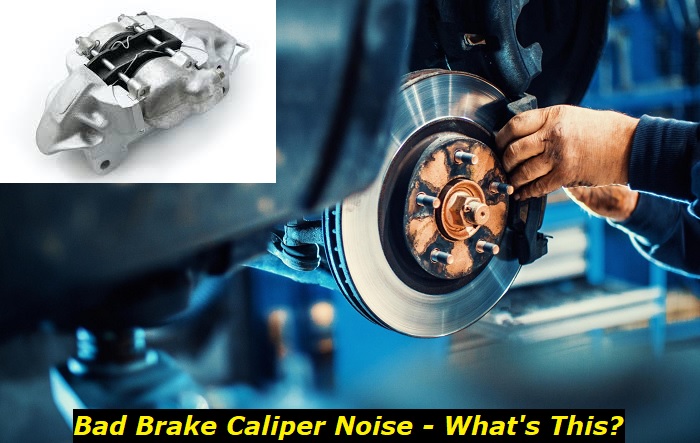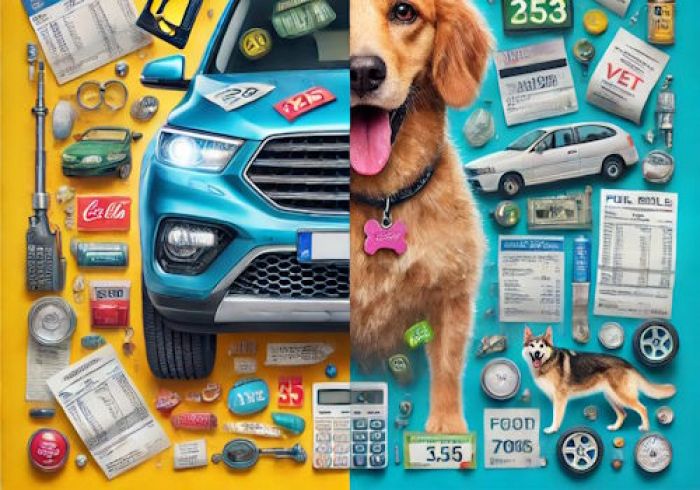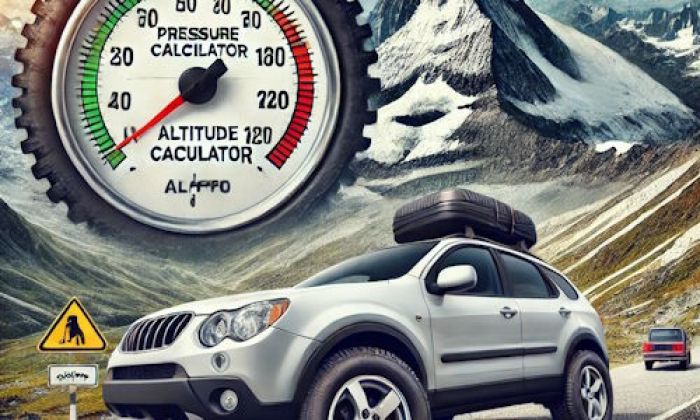There is all manner of noises a car can make. The one thing we know for sure is that a driver should always pay attention to unfamiliar noise coming from any part of the vehicle they are driving.
Brake caliper problems highlights
- Level of urgency:super-urgent
- DIY diagnostics:impossible
- DIY repairs:impossible
- Price for repair:$300 - $600
- Common symptoms:noise when driving, bad braking, locked-up wheels
- Commonreasons:old caliper, physical damage
- If ignored:locked wheels, dangerous driving, accidents

What is a brake caliper?
A brake caliper is a metal gadget made up of several components which play a crucial role in the disc-brake system. It works hand in hand with brake pads and the rotor. It employs pressure exerted by the master cylinder via brake fluid to cause friction on the rotor. This friction causes the rotor to slow down and, thus, the vehicle. The caliper is also used to hold the brake pads and caliper bracket in place.
The car's braking system will fail or malfunction if the caliper is not working properly. Each wheel has its own independent caliper. For it to perform as intended, other braking components, such as the master cylinder, the brake fluid, the rotor, and the brake pads, must be at their optimal state.
How do brake calipers work?
To best understand how the brake calipers work, let us look at the different types of calipers out there.
- Floating brake caliper - This caliper has pistons on one side of the rotor. They slide back and forth when brakes are applied. They are the most common.
- Sliding brake caliper - This caliper works similarly to the floating caliper, but in this case, the brake pads are attached to the caliper adapters.
- Fixed brake caliper - This type of caliper is fixed using a bracket and comes with sliding pins. This caliper has an equal number of pistons on both sides and is generally regarded as better in performance.
When drivers want to stop or slow down a car, they step on or press the brake pedal. This makes the master cylinder convert the pedal pressure into hydraulic pressure, which is then transferred to the brake caliper.
In the case of a floating and sliding brake caliper, the caliper is attached to a brake carrier. While the brake carrier cannot move, the caliper can slide back and forth using two guide pins. Once the driver applies pressure on the brake pedal, the hydraulic fluid displaces the piston, found in the caliper, axially. The piston presses the brake pads against the rotor, slowing the vehicle down.
What causes bad caliper noise?
- When driving, you might hit a pothole, curb, or rock, and this causes a sudden shock to the wheels and the car. Such shocks can make the calipers get damaged.
- Calipers will last many years, mostly around 70,000 miles, without malfunctioning. Like any other car part, they are subject to wear and tear. A worn-out caliper can make all manner of noise before completely breaking down. Since calipers are metallic, rust and corrosion limit their performance over time.
- When brake pads wear out, they expose the shims. When metal parts get in contact when braking, there will be loud screeching noise. The more one drives a car in this state, the worse the calipers will get.
Symptoms of a bad caliper
A car can give several indications when a brake caliper starts to deteriorate. These include:
- A clunking sound while driving can be heard. This noise is usually made when the caliper is loose.
- A malfunctioning caliper can also make a high-pitch squealing sound. In some instances, however, this noise can be made by rusted rotors.
- Calipers can make a squeaking sound. In this case, you must disassemble the caliper and apply high-temperature grease.
- If you hear a grinding noise, the caliper is stuck, and the brake pads are pressed on both sides of the rotor.
- Smoke coming from the wheels with a burning smell indicates the brakes are stuck.
- If you apply the brakes and it pulls to one side, it means the hydraulic pressure is only falling on one caliper.
- You might experience noticeable vibrations upon pressing the brake pedal. This problem usually happens when a caliper cannot release properly and on time.
- Bad calipers can cause the brake pads to wear out prematurely.
- Leakage of brake fluid can be an indicator of bad calipers. The good thing about this issue is that you can quickly identify the affected wheel. Just check for oil spots where you had parked the vehicle, and you will tell which wheel is with a bad caliper.
- Checking the brake lights when you notice any of the above symptoms can also help you know whether you have a bad caliper.
How to solve caliper noise problems
Several solution routes are available depending on the noise you hear and accompanying symptoms made by the wheels.
- If the problem is found to be the caliper stuck to the rotor, it should be removed and grease applied to both sides. Ensure no grease gets to the rotor or brake pads. There are times when greasing will not solve the problem, especially when the caliper and the rotor are already damaged. You should replace these parts then.
- Substandard brake pads wear out prematurely and can cause issues with other brake parts. Buy quality brake parts and regularly check the condition of the pads to avoid a situation where metallic components get into contact when braking.
- The squeaking and squealing noise can be solved by greasing the caliper components. The caliper piston, guiding pins, boots, and other moving components should be greased. The accumulation of dirt can also cause noise, which is solved by removing such dirt from the brake parts.
- In some cases, the brake shims should be removed to stop the squeaking noise. New shims also stop the vehicle from vibrating.
- Regular brake system service helps avoid and stop any damage to the system. Regular checking the state of the brakes is cheap and will help you detect worn-out brake pads, stuck calipers, or ungreased parts.
- Check for a brake fluid leak where the braking time takes longer and the brake warning light is illuminated.
How often should the brake system be serviced?
Car brakes are critical for the safe driving of a car. They should be serviced regularly and by a competent person. Brake pads should be replaced after driving for 10,000 or a max of 20,000 miles. The brake rotors should be replaced after serving for at most 70,000 miles.
Brake pads play a key role in ensuring the braking system is effective. Regular checking can tell you when they are due for replacement. Brake pads less than three-eighths of an inch thick in stoppage material should be replaced. Another thing to check is if they have raised lips or visible grooves.
If the brake pads wear out unevenly, it is time to check the condition of the brake calipers. The vehicle tends to pull in the direction of the damaged caliper. Any sound made by the calipers points to an immediate brake job by a competent technician.
What causes the brake caliper to stick?
We have looked into the different noises a faulty caliper can make. As discussed, there are several reasons why a caliper can fail or the brake system can malfunction. The most common caliper problem that mechanics encounter is a stuck caliper. Here are the leading causes of the problem;
- Brake hose
When the brake hose wears out, the brake fluid will only flow in one direction, and this causes the brake pads to hesitate. When brakes are not applied, the fluid will not flow in the opposite direction causing the caliper to get stuck.
- Caliper slides
A caliper has grooves holding the brake pads in place. The brake pads slide in and out of the grooves when the driver applies the brakes. If there is dirt in the grooves or they get worn out, you might need to replace the calipers.
- Caliper pistons
The piston has a rubber boot that ensures the piston stays lubricated and protected. The rubber boot can get torn, leading to dirt entering and contaminating the inside of the piston. Dirt, water, and air will cause the piston to rust, which hampers its movement. This eventually leads to the caliper getting stuck.
- Caliper bolts
The caliper bolts are also called guiding pins. The bolts slide back and forth whenever the brakes are applied. The bolts have boots that protect them from dirt and debris, which causes the bolt to dry out. The smooth movement of the bolts will be hampered, and this will cause the caliper to stick.
Conclusion
Brake calipers rarely malfunction, and when they do, there is a good chance the brake system has been neglected in one way or another. Regular replacement of the brake pads as recommended and checking the brake fluid level can help you avoid caliper issues.
There are times when the caliper can malfunction on its own, though. The information above will help you solve the problem before it escalates and costs you lots of money.
About the authors
The CarAraC research team is composed of seasoned auto mechanics and automotive industry professionals, including individuals with advanced degrees and certifications in their field. Our team members boast prestigious credentials, reflecting their extensive knowledge and skills. These qualifications include: IMI: Institute of the Motor Industry, ASE-Certified Master Automobile Technicians; Coventry University, Graduate of MA in Automotive Journalism; Politecnico di Torino, Italy, MS Automotive Engineering; Ss. Cyril and Methodius University in Skopje, Mechanical University in Skopje; TOC Automotive College; DHA Suffa University, Department of Mechanical Engineering






Add comment